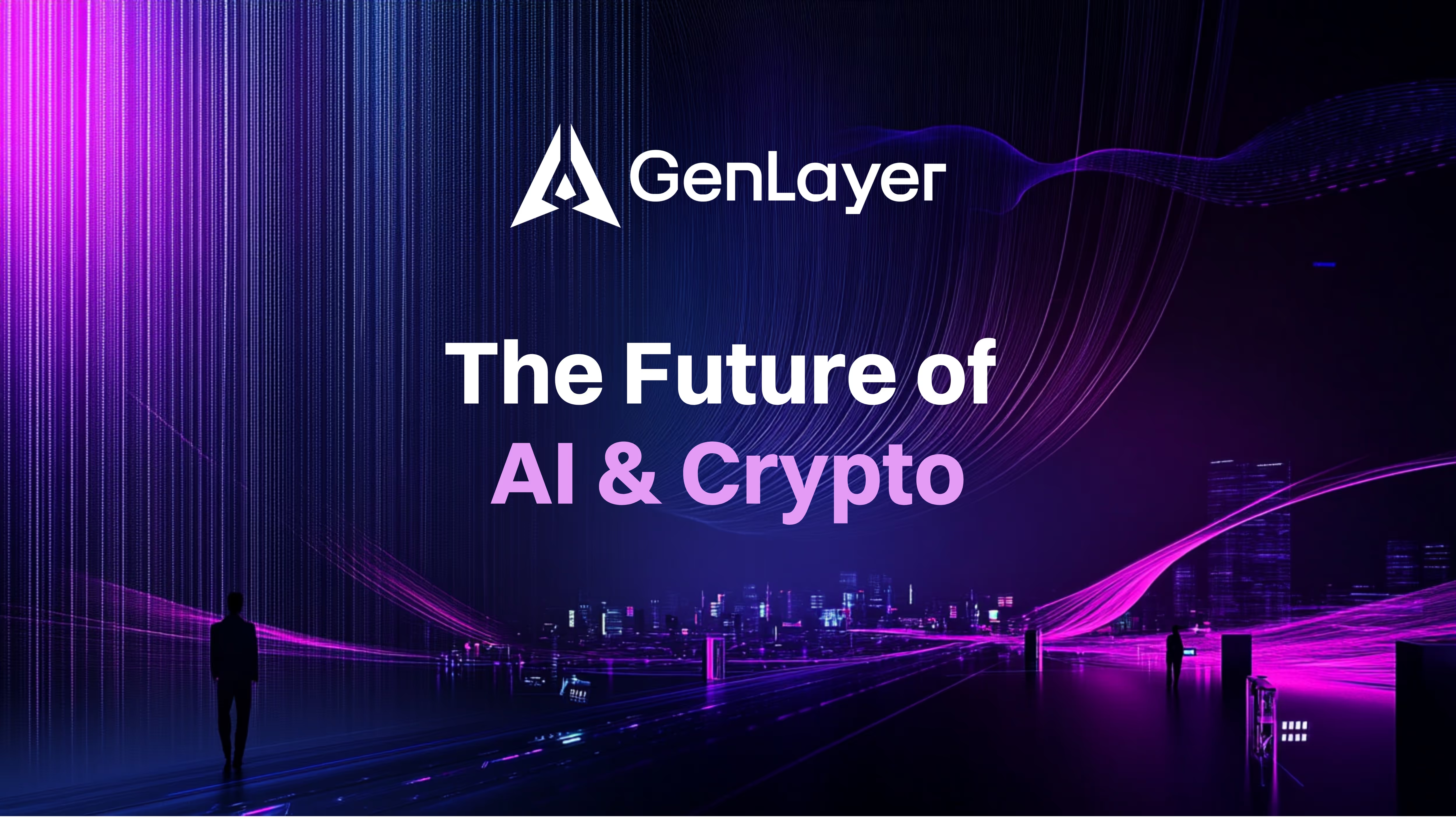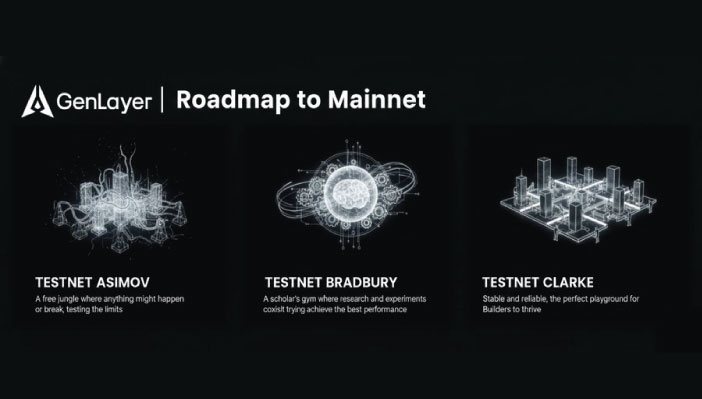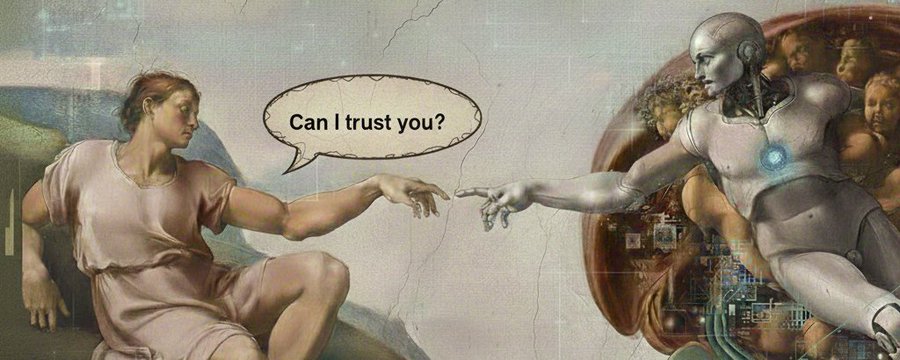Table of Contents

What Could the Future of AI and Crypto Look Like?
The intersection of artificial intelligence and blockchain technology has the potential to enable a new set of decentralized, more intelligent applications than ever before. And we can already see the interest picking up: Not a single day is passing without new investment rounds in AI x Crypto companies and announcements of partnerships.
In this article, we will dive deep into what a symbiosis of these two disrupting technologies brings for the future.
As the famous futurist Ray Kurzweil once said: “The future is not a destination, it’s a direction.”
The Fusion of AI and Crypto
Several innovative projects are already working on AI and crypto, each with its own unique way of combining those technologies. For example, GenLayer is developing an AI-powered Blockchain that harnesses the full intelligence of the internet to enable new decentralized applications.

SingularityNET is building a decentralized AI-service marketplace, while Ocean Protocol focuses on creating a decentralized data exchange for AI training. On the other hand, decentralized networks like Akash and Render are democratizing access to compute. By using computing resources across a distributed network, these platforms are lowering the entry barriers for new participants to the ecosystem.
Comparing this approach to existing “Web2” solutions shows a clear picture: Large Language Models (LLMs) require compute resources, which are often times provided by centralized cloud based GPUs. Usually, cloud services are provided by some industry heavyweights like Nvidia’s GPU Cloud, Amazon Web Services or Google Cloud. With the before mentioned blockchain solutions LLMs can use distributed resources to reduce the reliance on centralized cloud services.
These projects are just the tip of the iceberg. The industry is still growing, and innovative projects are funded daily.
AI and Blockchain: A Symbiotic Relationship
To truly understand the disruptive future potential of merging these two technologies, let’s look at their unique characteristics. AI can significantly improve the efficiency of blockchain networks. As shown by GenLayer’s AI-powered Blockchain it can help expand the functionalities of casual smart contracts by connecting them natively to the internet.
Also, AI algorithms can predict the best times for executing transactions to minimize fees or adjust consensus mechanisms dynamically based on network load. Using AI in smart contract audits can help identify vulnerabilities and optimize code. It can also be used to detect fraudulent activities, making blockchain networks more robust and reliable.
On the other hand, Blockchain technology provides a secure, transparent framework for Web3 projects that are advancing into a new AI area. By leveraging blockchain’s immutable and tamper-proof nature, AI developers can ensure the integrity of their data. It also allows AI models to access broad data sets without relying on a central authority or utilizing decentralized compute through networks.

The blockchain enables secure and efficient data sharing and monetization mechanisms within a token economy. Compared to centralized agents, AI agents on the blockchain can also operate autonomously and interact with each other without human intervention. Consider a DAO buying services from an AI agent, which then subcontracts another AI agent or helps in decision-making processes. Integrating AI with blockchain technology at its core represents an important shift towards creating more intelligent, autonomous, and efficient decentralized systems. In some cases they even expand the possibilities of “casual” smart contracts on the blockchain by utilizing LLMs.
Vision of the Near Future
Let’s just envision a not-so-distant future in three years. Think of a decentralized legal system where AI arbitrators resolve contract disputes independently. You are a freelancer who fulfilled the obligation in your contract, but the company won’t pay you? Simply submit your case to an AI trained in legal databases, which will decide the case for you based on the agreed legal frameworks. This automation could fasten resolutions and reduce costs associated with traditional arbitration.
Also, a blockchain platform could enable a decentralized world database by incentivizing the crowd-sourced collection of information. Individuals or AI agents would be rewarded for gathering and summarizing accurate data on various topics to be written on a blockchain.
Challenges and Opportunities
Integrating AI with blockchain comes with its own set of technical and logistical challenges, including interoperability issues, data privacy and security concerns, and ethical and legal considerations. While legal frameworks on blockchain and AI worldwide are being implemented, such as the EU’s MiCA regulation, this new niche might have its own legal difficulties. Issues such as data privacy and intellectual property rights will require collaboration between regulators, industry leaders, and the whole AI and Crypto community. For example, Ocean Protocol addresses intellectual property rights by enabling secure and controlled sharing of data and AI models while preserving ownership and privacy.
Additionally, investments in AI and crypto startups have been on the rise, with venture capitalists and institutional investors recognizing the immense potential of these technologies. As more funding flows into the AI Crypto space, we can expect to see accelerated innovation and the emergence of new players. For instance, VanEck, a prominent investment management firm, projects that AI-focused crypto projects could collect $10.2 billion in annual revenues by 2030, highlighting the significant growth potential in this space. AI Tokens have also been one of the most lucrative investments since the beginning of 2023, as shown below:

Future Projections and Trends
Renowned futurists and thought leaders, such as Ray Kurzweil, have made bold predictions about the future of AI and crypto. Kurzweil envisions a future where AI will surpass human intelligence, leading to a technological singularity. He also believes that blockchain technology will play a crucial role in ensuring the security and transparency of AI systems.
As these predictions unfold, the convergence of AI and crypto could have implications for various sectors. In the future, we can expect to see a shift towards more decentralized compute being utilized, as projects like Akash and Render gain traction. This will democratize access to computing resources and enable more inclusive AI development.
Additionally, we may witness the seamless integration of AI agents into any dApp or app, with these agents pulling data from a blockchain where each user is compensated for their data contributions. This creates a more equitable and user-centric data economy, where individuals have control over their personal information and are rewarded for sharing it.
What’s next?
The fusion of AI and crypto technologies holds immense potential for disruption across various sectors. As these two fields continue to evolve, we can expect to see more intelligent systems that revolutionize how we interact with technology and each other.
Preparing for a future where AI and crypto play a central role is important, as it will require a joint effort from researchers, developers, regulators, and users.
By embracing the opportunities and addressing the challenges that lie ahead, we can shape a future where the synergies between AI and crypto drive innovation, promote transparency, and create value for society as a whole.
Website | Blog | Discord | X (prev. Twitter) | Telegram | Simulator | Docs | Whitepaper
Related articles

GenLayer Roadmap to Mainnet
GenLayer roadmap explained: GenVM, Optimistic Democracy, testnets, and the path to Mainnet.

What Does Trust Mean for an Artificial Intelligence?
An exploration of how trust evolves from a human social mechanism into a machine-governed system, and why GenLayer proposes blockchain-based AI consensus for trustless decision-making











%20(1)%20(1).png)